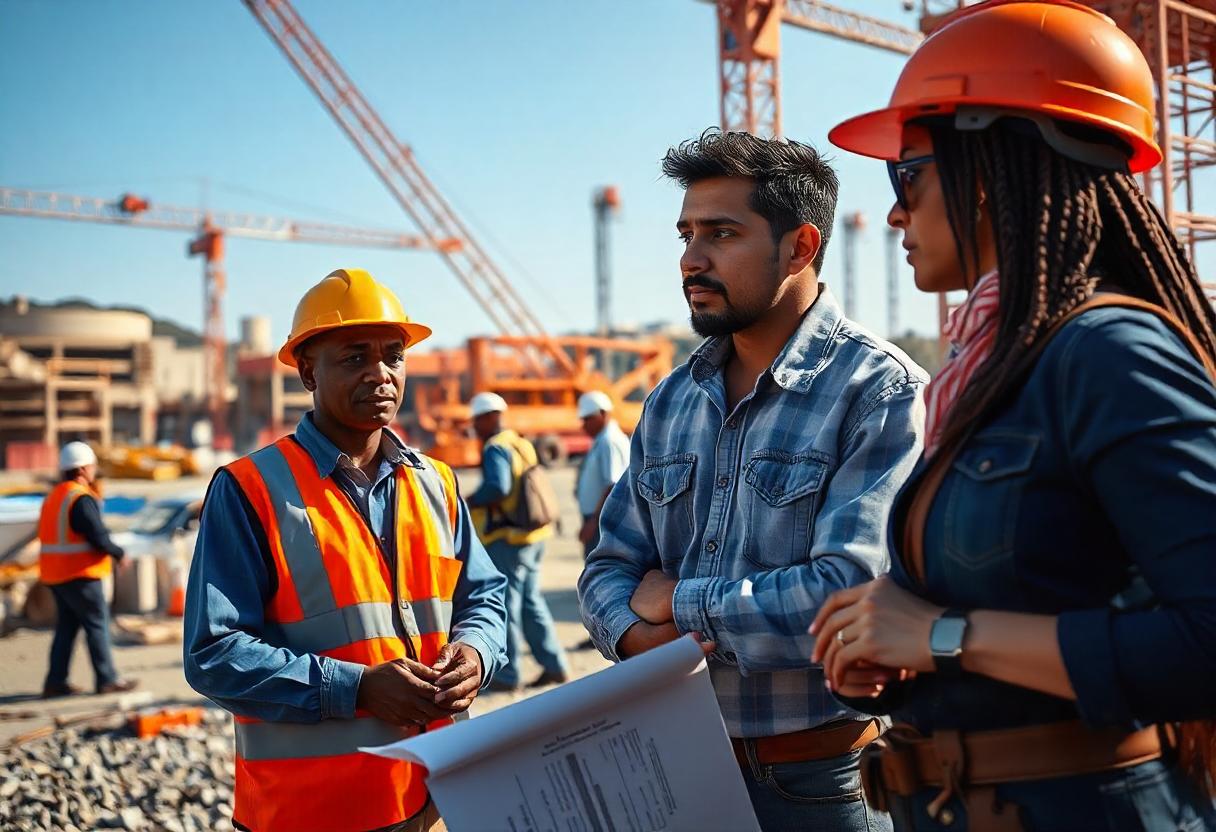Infrastructure Development in Brazil
Brazil’s infrastructure sector presents an untapped potential for foreign investors, driven by the government’s ambitious development plans and demand for modernized transport, energy, and urban systems. With initiatives such as the Programa de Parcerias de Investimentos (PPI), Brazil is actively fostering public-private partnerships (PPPs) to attract global expertise and capital.
This article explores the vast opportunities in Brazil’s infrastructure development and provides practical insights into how foreign investors can effectively enter this high-potential market.
The Growing Demand for Infrastructure Investment
Brazil’s vast territory and growing economy create pressing needs for improved infrastructure. The demand is evident in areas such as:
- Transportation: Ports, railways, and urban transit systems require modernization to enhance connectivity and reduce logistical bottlenecks.
- Energy: The transition to renewable energy sources and expansion of grid capacity are critical priorities.
- Urban Development: With increasing urbanization, investments in housing, sanitation, and smart city technologies are essential for sustainable growth.
Foreign investors can play a pivotal role in addressing these challenges while benefiting from strong returns and government incentives.
Key Opportunities in Brazil’s Infrastructure Sector
1. Transportation and Logistics: Enhancing Connectivity
Brazil’s extensive landmass and reliance on exports make transportation infrastructure a cornerstone of economic growth. Key opportunities include:
- Railways: Projects like Ferrogrão (Grain Railway) aim to enhance freight transport in agribusiness hubs.
- Ports: Investments in port modernization and expansion, especially in the Northeast and South, are critical to improving trade flows.
- Urban Transit: PPPs for metro systems and bus rapid transit (BRT) networks in major cities like São Paulo and Rio de Janeiro offer long-term profitability.
2. Renewable Energy Infrastructure
Brazil’s commitment to clean energy presents investment opportunities in:
- Hydropower: Expanding capacity while modernizing existing plants.
- Wind and Solar Farms: Particularly in the Northeast, where natural conditions are optimal.
- Energy Storage Solutions: Supporting the integration of renewable sources into the national grid.
3. Sanitation and Urban Services
Brazil’s Marco Legal do Saneamento Básico (Sanitation Legal Framework) has unlocked opportunities in water and sewage infrastructure. By 2033, the goal is universal access to water and sanitation services, requiring billions in investments. Foreign investors can engage in concession agreements for water treatment plants and waste management facilities.
How to Navigate the Brazilian Infrastructure Market
Understand the Regulatory Framework
Infrastructure projects often involve complex regulations at federal, state, and municipal levels. The PPI serves as a gateway for investors by providing transparency and a streamlined process for accessing opportunities.
Levevage Public-Private Partnerships (PPPs)
PPPs are the primary mechanism for infrastructure development in Brazil, offering:
- Long-term concession contracts.
- Attractive returns tied to performance metrics.
- Risk-sharing models that minimize investor exposure.
Access Financing Solutions
Foreign investors can take advantage of financing options through:
- Development banks like BNDES, which support infrastructure projects aligned with national priorities.
- International partnerships with institutions such as the World Bank and IDB (Inter-American Development Bank).
Benefits of Investing in Brazilian Infrastructure
High Growth Potential
Brazil’s infrastructure gap provides a unique opportunity for first movers to capture significant market share in underdeveloped regions.
Government Support
The PPI and other initiatives ensure favorable conditions for foreign investors, including reduced bureaucracy and tax incentives.
Sustainability Impact
Investments in areas like renewable energy and urban sanitation align with global ESG standards, enhancing investor credibility.
Conclusion: Building the Future Together
Brazil’s infrastructure sector offers foreign investors a golden opportunity to contribute to the country’s modernization while reaping substantial rewards. From transportation networks to clean energy projects and urban services, the possibilities are vast.
Begin your journey by understanding the regulatory environment and identifying strategic partnerships. For guidance on establishing your business in Brazil, read our article 5 Steps to Register a Brazilian Company and contact us to explore how we can support your infrastructure investment strategy.
Keywords: Brazil; Infrastructure; Foreign Investment; PPP; Renewable Energy; Transportation; Sanitation.









